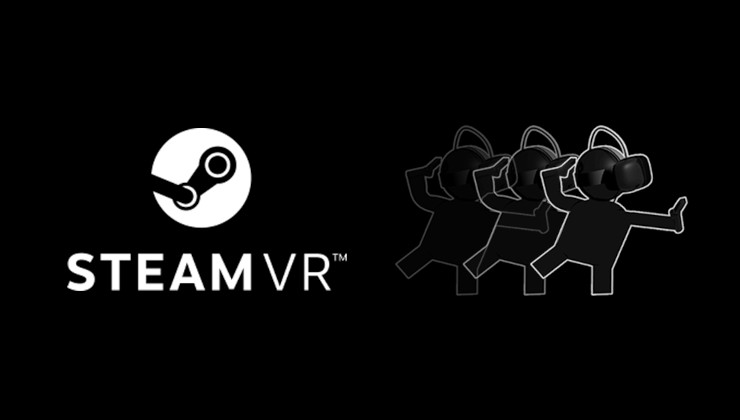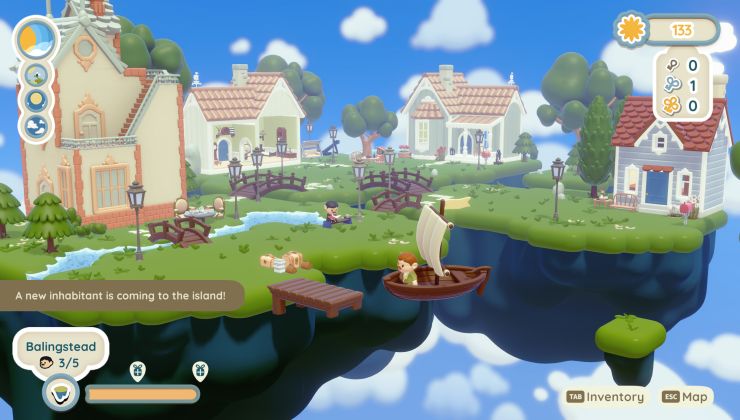Valve have ripped the lid off their latest project named 'Steam Audio', an SDK of advanced audio tools that will support Linux.
What is it exactly?
Steam Audio delivers a full-featured audio solution that integrates environment and listener simulation. HRTF significantly improves immersion in VR; physics-based sound propagation completes aural immersion by consistently recreating how sound interacts with the virtual environment.
It's currently in Beta and it will support Windows (32 bit and 64 bit), Linux (32 bit and 64 bit), macOS, and Android (ARMv-7).
It already supports Unity 5.2+ and they are working on integration with Unreal Engine 4 right now.
Epic Games will have a demo of Steam Audio in Unreal Engine at GDC next week. I'm pretty keen to hear more about it!
You can see the website for it, the github and the Steam hub. You can also see more info and some examples on this news post on Steam.
It is slightly worrying though, that this could end up being yet another reason for games to be tied to Steam unable to go on other platforms. Will be interesting to see what happens here, as lock-in isn't healthy for anyone. However, since it will run on Android, it sounds like it might be portable enough.
To be clear, it doesn't look like it is locked to Steam, at all. I do hope Valve keep it this way and it's great they released it for free like this.
What is it exactly?
Steam Audio delivers a full-featured audio solution that integrates environment and listener simulation. HRTF significantly improves immersion in VR; physics-based sound propagation completes aural immersion by consistently recreating how sound interacts with the virtual environment.
It's currently in Beta and it will support Windows (32 bit and 64 bit), Linux (32 bit and 64 bit), macOS, and Android (ARMv-7).
It already supports Unity 5.2+ and they are working on integration with Unreal Engine 4 right now.
Epic Games will have a demo of Steam Audio in Unreal Engine at GDC next week. I'm pretty keen to hear more about it!
You can see the website for it, the github and the Steam hub. You can also see more info and some examples on this news post on Steam.
It is slightly worrying though, that this could end up being yet another reason for games to be tied to Steam unable to go on other platforms. Will be interesting to see what happens here, as lock-in isn't healthy for anyone. However, since it will run on Android, it sounds like it might be portable enough.
To be clear, it doesn't look like it is locked to Steam, at all. I do hope Valve keep it this way and it's great they released it for free like this.
Some you may have missed, popular articles from the last month:
All posts need to follow our rules. For users logged in: please hit the Report Flag icon on any post that breaks the rules or contains illegal / harmful content. Guest readers can email us for any issues.
I am not sure why there are always people that jump to the worst conclusion possible about anything to do with Valve, but Steam Audio is 100% royalty-free and they have made the source code available as well.
I didn't find the source. The only thing available on github it their license file, which is clearly not FOSS. If you refer to the archive called "Source code", it's the same thing. There isn't actual code in it.
Last edited by Shmerl on 28 Feb 2017 at 11:19 pm UTC
0 Likes
I am not sure why there are always people that jump to the worst conclusion possible about anything to do with Valve, but Steam Audio is 100% royalty-free and they have made the source code available as well.
I didn't find the source. The only thing available on github it their license file, which is clearly not FOSS. If you refer to the archive called "Source code", it's the same thing. There isn't actual code in it.
Well, I guess that all depends how you define FOSS, which is rather subjective. It's definitely not a GPL license, that's true, but then that really would not be at all practical either, because no one could integrate it with their finished product, unless they wanted to open source that as well. I don't think you will find a AAA developer that is willing to spend millions on development, then turn around and open source their completed game under the GPL. So an open custom permissive license, that can be tailored to the intended use, is really the most practical option, which is exactly what Valve did. So it's about as open as it can be, its free, and they provide the source code for it. (The source code is in the api archive) If you want to call that FOSS or not, I suppose that is up to how exactly you want to define FOSS. But here is what the license permits for usage, which is fairly permissive-
**1. License.**
1.1 *License Grant*. Valve hereby grants Licensee a nonexclusive, royalty-free, worldwide, nontransferable license to:
(a) use, reproduce and modify the SDK solely to develop Licensee Product using the Steam Audio SDK;
(b) reproduce, distribute and license the Licensee Product including the SDK; and
(c) reproduce and distribute exact copies of the SDK without charge, in the same form and with all associated files that the SDK is received by Licensee pursuant to this Agreement, provided that Licensee will: (1) only distribute copies of the SDK with this Agreement included and subject to the receiving party agreeing to the terms of this Agreement; and (2) preserve in all copies of the SDK all copyright and legal notices that are attached to the copy of the SDK received by Licensee pursuant to this Agreement.
0 Likes
I define FOSS as one preserving software freedoms, it's a pretty well known definition. It doesn't need to stop it from integrating with finished product. Regardless, as I said, there is no actual source published there.
0 Likes
I am not sure why there are always people that jump to the worst conclusion possible about anything to do with Valve, but Steam Audio is 100% royalty-free and they have made the source code available as well. There is a link provided to the GIT page right in the original post, or take a look here- https://github.com/ValveSoftware/steam-audio/releases
As far as I can see, there is no source code anywhere to be found. Not in the repo, and not in the releases.
OpenAL is partly free, but for the more advanced features, Creative holds the rights on it and licenses it out, and I don't think MS will be sharing any of their crap anytime soon (thankfully). Sure, I would have preferred to see a full GPL license on Steam Audio, but I am still all for any free option, with freely available source code, especially if it provides a high quality, free alternative to other "less friendly" companies.
OpenAL is LGPL. Sure, there are "devices" (basicly output plugins) that Creative holds licenses to, but you don't have to use them. MS has actually released some nice code under MIT license recently, like .net Core and Visual Studio Code (which is really good, btw), not every code from Microsoft is bad and crap anymore ;).
And again, no source code for Steam Audio. Sure, it's free (as in free beer), and even if it had source code, the license is not FOSS-friendly at all.
0 Likes
It may not be FOSS, but even the Linux Foundation uses the term Open Source (absolutely no harsh feelings.. just saying), which is a term we can all somewhat agree on.
I agree there are distinct differences b/w the two, but sometimes you have to take a step back and look how far we've come. Progress in small steps is still progress..
I agree there are distinct differences b/w the two, but sometimes you have to take a step back and look how far we've come. Progress in small steps is still progress..
0 Likes
I define FOSS as one preserving software freedoms, it's a pretty well known definition. It doesn't need to stop it from integrating with finished product. Regardless, as I said, there is no actual source published there.
A lot of people consider the BSD license to be FOSS, and it is in fact a more permissive license than the GPL, with less strings attached to it. But it also permits compiling to binary only format and selling the software, which hardly preserves software freedoms, at least for anyone else downstream, like the GPL does, just as an example of why I say it depends on how you define FOSS and how it is subjective to each person. But it seems you are right, there is only a header file there, so my apologies for the mistake. The license does permit modification to the software for use in a product, so hopefully the empty "source code" archive is just a place holder or an oversight and they still have plans to release it at some point. The empty "source code" archive does seem very strange.
0 Likes
[quote=drakkar123]
That's actually GitHub. When you do a release, it will automatically zip and tar a snapshot of the repo and call it "Source Code". Happens when I do releases too, and automatically.
... The license does permit modification to the software for use in a product, so hopefully the empty "source code" archive is just a place holder or an oversight and they still have plans to release it at some point. The empty "source code" archive does seem very strange.
That's actually GitHub. When you do a release, it will automatically zip and tar a snapshot of the repo and call it "Source Code". Happens when I do releases too, and automatically.
0 Likes
OpenAL is partly free, but for the more advanced features, Creative holds the rights on it and licenses it out, and I don't think MS will be sharing any of their crap anytime soon (thankfully). Sure, I would have preferred to see a full GPL license on Steam Audio, but I am still all for any free option, with freely available source code, especially if it provides a high quality, free alternative to other "less friendly" companies.
OpenAL is LGPL. Sure, there are "devices" (basicly output plugins) that Creative holds licenses to, but you don't have to use them. MS has actually released some nice code under MIT license recently, like .net Core and Visual Studio Code (which is really good, btw), not every code from Microsoft is bad and crap anymore ;).
And again, no source code for Steam Audio. Sure, it's free (as in free beer), and even if it had source code, the license is not FOSS-friendly at all.
The original OpenAL was first developed by Loki, to aid in porting Windows games to Linux. I have no idea what license it first started out with back then. But Loki obvious went under, and OpenAL was free for a short time, but then was later acquired by Creative around the same time MS announced their switch to XACT/Xaudio, and tried to kill hardware audio and EAX. "OpenAL Soft" is LGPL, which I believe was an early fork from OpenAL before version 1.1, when it was turned proprietary by Creative. OpenAL Soft a free alternative now, but it lacks some of the more advanced 3D audio features that Creative holds the rights too. If you look at a AAA games that use OpenAL, most of them are using the Creative Library, which they do have to license from Creative. Though I have seen some games using the free version too, just not very many that I have seen. They are basically two different products though now.
I agree, that not "all" MS software is crap, but I am not at all a fan of the XACT/Xaudio sound system for many reasons. But one reason on a personal level, I have a Creative X-Fi (and high end audiophile headphones), and I still really have no idea why but my sound quality with ALSA (without pulseaudio) is amazing. It is far better quality than in Windows. Even though in Windows, it is using proprietary drivers from Creative, specifically designed for my card. Its not that it is bad in Windows, but I know it could still be much better than what it is, and in fact it is much better when playing older games that use Alchemy/OpenAL to restore hardware acceleration and EAX, and it bypasses the MS crap. The quality is still not quite as good as ALSA, but its very close. In the end, when it comes to gaming or any multimedia really, I want the best video and audio quality I can get out of my hardware, which Linux has graciously provided to me for many years.
Last edited by drakkar123 on 1 Mar 2017 at 9:08 pm UTC
0 Likes







 How to set, change and reset your SteamOS / Steam Deck desktop sudo password
How to set, change and reset your SteamOS / Steam Deck desktop sudo password How to set up Decky Loader on Steam Deck / SteamOS for easy plugins
How to set up Decky Loader on Steam Deck / SteamOS for easy plugins
See more from me